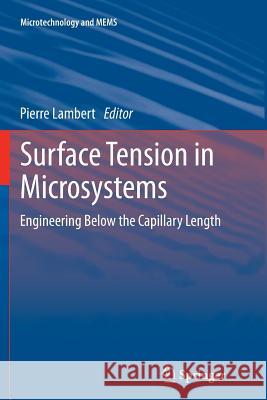Surface Tension in Microsystems: Engineering Below the Capillary Length » książka
topmenu
Surface Tension in Microsystems: Engineering Below the Capillary Length
ISBN-13: 9783662507797 / Angielski / Miękka / 2016 / 327 str.
Kategorie:
Kategorie BISAC:
Wydawca:
Springer
Seria wydawnicza:
Język:
Angielski
ISBN-13:
9783662507797
Rok wydania:
2016
Wydanie:
Softcover Repri
Numer serii:
000211324
Ilość stron:
327
Waga:
5.45 kg
Wymiary:
23.5 x 15.5
Oprawa:
Miękka
Wolumenów:
01
Dodatkowe informacje:
Wydanie ilustrowane











